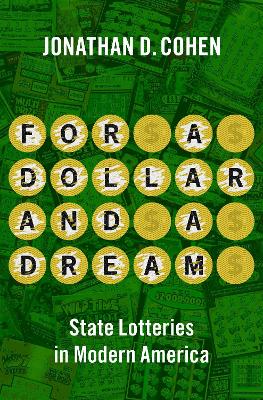This first comprehensive history of America's lottery obsession explores the spread of state lotteries and how players and policymakers alike got hooked on wishful dreams of an elusive jackpot.
Every week, one in eight Americans place a bet on the dream of a life-changing lottery jackpot. Americans spend more on lottery tickets annually than on video streaming services, concert tickets, books, and movie tickets combined.
The story of lotteries in the United States may seem straightforward: tickets are bought predominately by poor people driven by the wishful belief that they will overcome infinitesimal odds and secure lives of luxury. The reality is more complicated. For a Dollar and a Dream shows how, in an era of surging inequality and stagnant upward mobility, millions of Americans turned to the lottery as their only chance at achieving the American Dream. Gamblers were not the only ones who bet on
betting. As voters revolted against higher taxes in the late twentieth century, states saw legalized gambling as a panacea, a way of generating a new source of revenue without cutting public services or raising taxes. Even as evidence emerged that lotteries only provided a small percentage of state revenue,
and even as data mounted about their appeal to the poor, states kept passing them and kept adding new games, desperate for their longshot gamble to pay off. Alongside stories of lottery winners and losers, Jonathan Cohen shows how gamblers have used prayer to help them win a jackpot, how states tried to pay for schools with scratch-off tickets, and how lottery advertising has targeted lower income and nonwhite communities.
For a Dollar and a Dream charts the untold history of the nation's lottery system, revealing how players and policymakers alike got hooked on hopes for a gambling windfall.
- ISBN10 0197604889
- ISBN13 9780197604885
- Publish Date 1 December 2022
- Publish Status Forthcoming
- Publish Country US
- Imprint Oxford University Press Inc
- Format Hardcover
- Pages 272
- Language English
